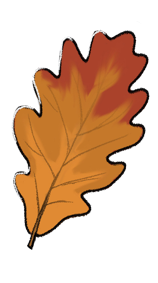The ancient religions and divination systems that developed in West Africa among the Ewe, Fon, Kaye, and Tchamba people of Dahomey, Togo, and Benin, focusing on worship of the Loas (Lwa). Sevi Lwa is also called Vodun, Voodoo, Woodoo, Voudou, or Budu -- names that come from an African word for "spirit." Vodun's diaspora roots go back to the West African people who brought their religion with them when they were forcibly enslaved in Brazil, Haiti, Cuba, and other islands in the West Indies. Like most African Traditional Religions, Vodun is currently practiced under several names on both sides of the Atlantic Ocean. In the Western Hemisphere, Vodou has also been influenced by the Kongo and Bantu cultures of the Congo River Basin; by the indigenous Arawaks, Caribs and Tainos; and, to some extent, by the Roman Catholicism of the colonizing French.
More information
More information
Related categories 1
Sites 9
Small but well-designed site which features pages of information about some of the major Vodou lwa, and also reviews of books about Vodou.
Excellent educational resource about New Orleans Voodoo. Includes an extensive Voodoo Glossary,Vever Drawings, FAQ page, and a free service in which email questions are answered by Authentic practitioners.
A biographical memorial to a former hubono or high priest of the traditional Dahomeyan African Rada Voodoo religious community in Trinidad, West Indies..
Collection of scholarly and informative documents, by various authors, on the history and practice of Vodun (Voodoo) in Haiti; part of an even larger site on Haitian history in general.
Historical and practical information on Vodoun, its panteon, and its rituals, from religioustolerance.org
Academic article by John Cussans about the misrepresentations of Vodou in the Western media. Originally presented as a lecture at the October Gallery, London, in fall 2000.
By Joseph J. Williams (1932), e-text from the Internet Sacred Text Archive.
Article about the religion and practice of Voodoo [by whatever spelling] on the Web's free and open-edited encyclopedia.
Essay by Dr. Marie-Jose Alcide Saint-Lot, a scholar of Haitian popular culture with graduate degrees from Brooklyn College and CUNY. This paper first presented at the American Museum of Natural History in New York.
Essay by Dr. Marie-Jose Alcide Saint-Lot, a scholar of Haitian popular culture with graduate degrees from Brooklyn College and CUNY. This paper first presented at the American Museum of Natural History in New York.
Academic article by John Cussans about the misrepresentations of Vodou in the Western media. Originally presented as a lecture at the October Gallery, London, in fall 2000.
Excellent educational resource about New Orleans Voodoo. Includes an extensive Voodoo Glossary,Vever Drawings, FAQ page, and a free service in which email questions are answered by Authentic practitioners.
A biographical memorial to a former hubono or high priest of the traditional Dahomeyan African Rada Voodoo religious community in Trinidad, West Indies..
Article about the religion and practice of Voodoo [by whatever spelling] on the Web's free and open-edited encyclopedia.
Historical and practical information on Vodoun, its panteon, and its rituals, from religioustolerance.org
Collection of scholarly and informative documents, by various authors, on the history and practice of Vodun (Voodoo) in Haiti; part of an even larger site on Haitian history in general.
Small but well-designed site which features pages of information about some of the major Vodou lwa, and also reviews of books about Vodou.
By Joseph J. Williams (1932), e-text from the Internet Sacred Text Archive.

Last update:
January 18, 2022 at 12:48:30 UTC

Check out
Regional: Europe: United Kingdom: England: London: Haringey: Health
- Recently edited by merlin1
- Recently edited by merlin1